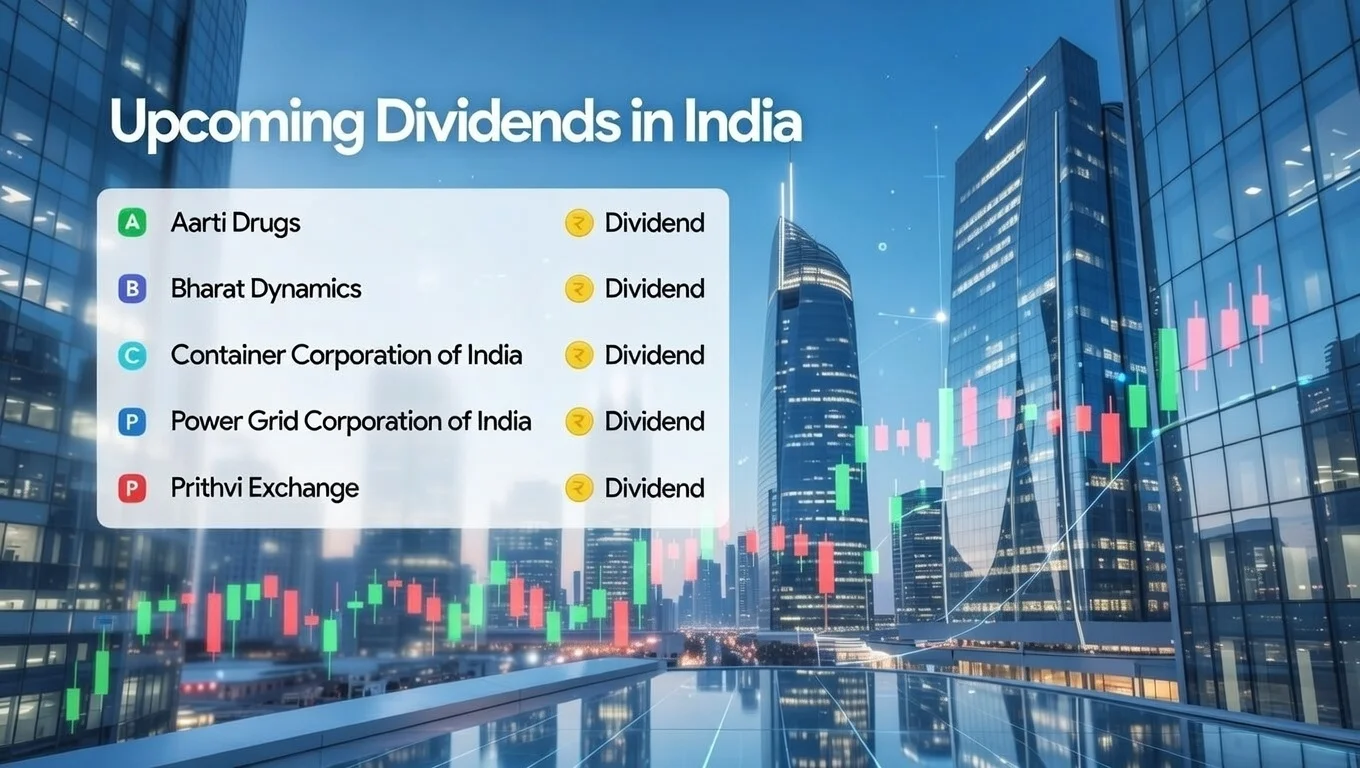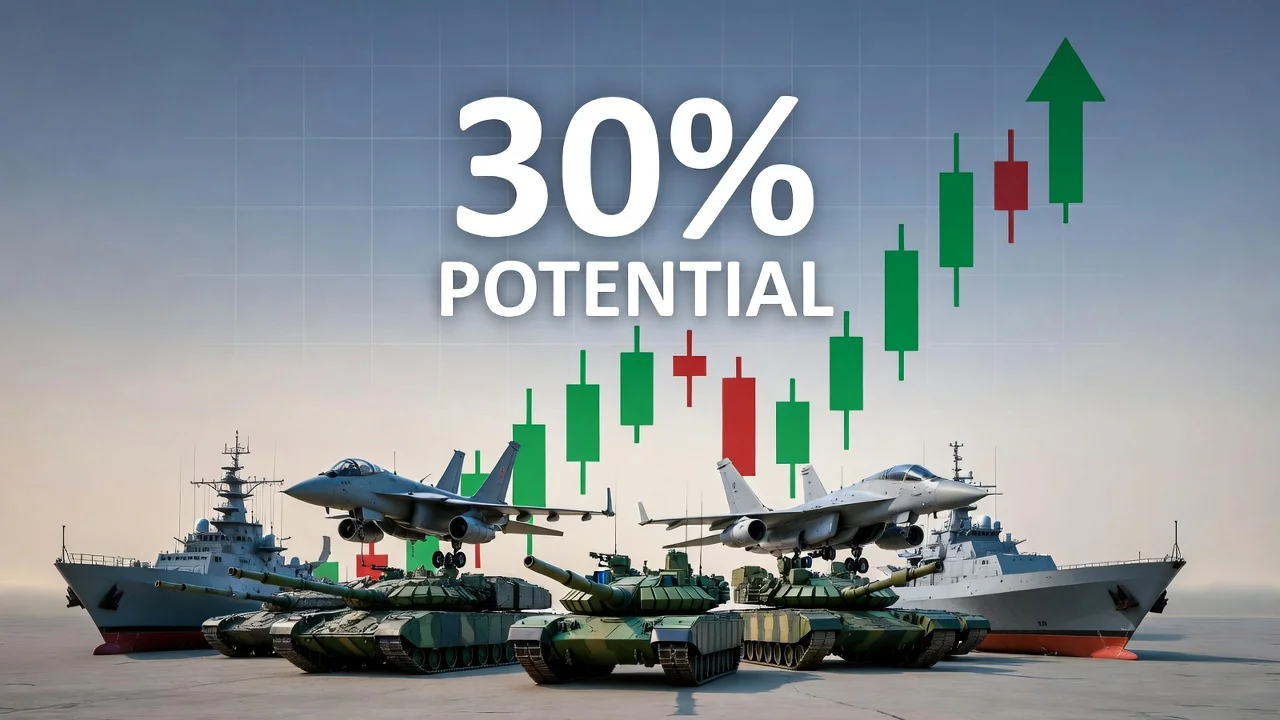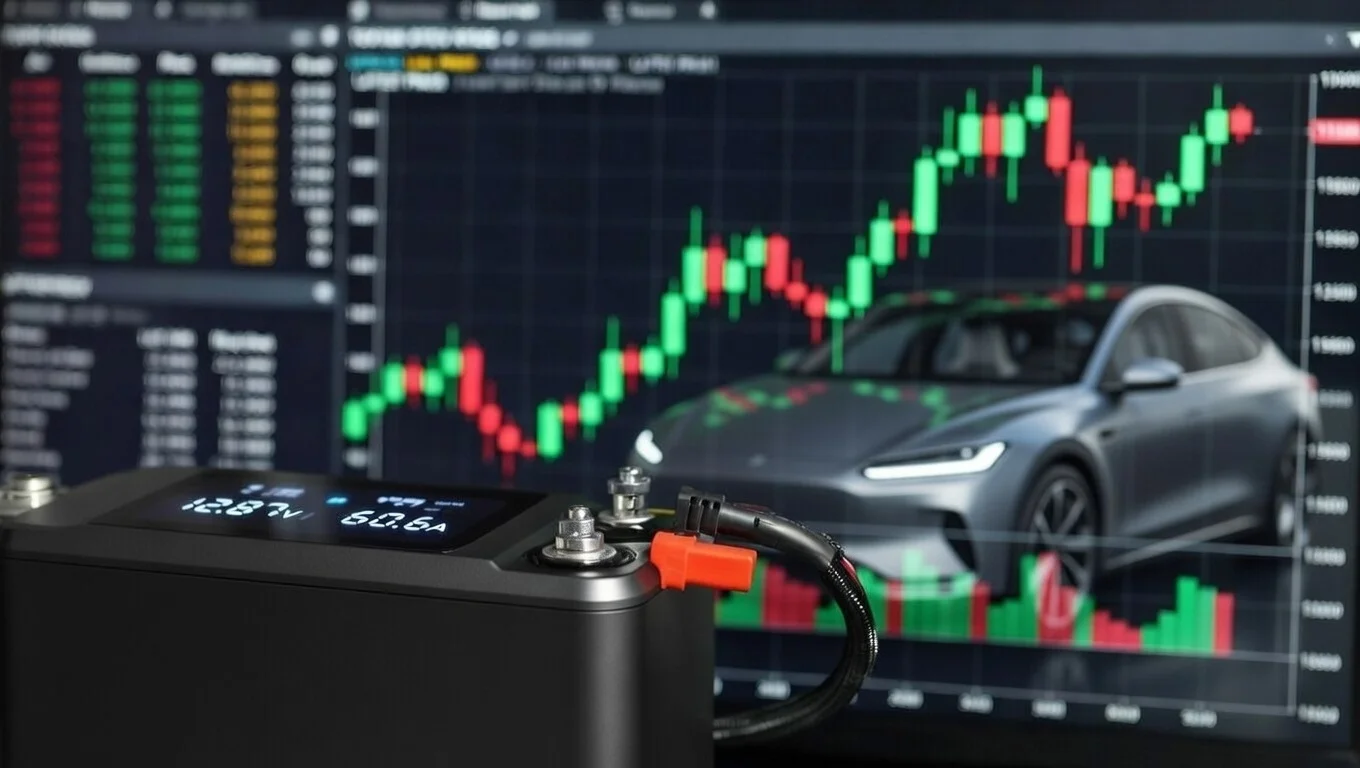Home >> Blog >> Sensex Drops 1,300 Points, Why did the market crash today?
Sensex Drops 1,300 Points, Why did the market crash today?

Table of Contents
- 1. HDFC Bank's Quarterly results
- Detailed Video
- 2. Pakistan and Iran Conflict
- 3. Valuation concern caused profit booking
- 4. Weak Signs from Global Markets
- 5. Less Hope for Lower Interest Rates in the US
- 6. China gdp miss estimates
- 7. Technicals
- 8. Investor Activity: FIIs Boost, DIIs Sell Off
- Conclusion
The Indian stock market witnessed an extremely turbulent Wednesday as the Sensex crashed over 1,350 points, dragging the Nifty below the crucial 21,650 mark. The financial sector took a severe hit, with HDFC Bank and IEX plummeting by up to 6%.
In this blog we will try to understand the reasons behind this rally and will also shed some light into the key factors contributing to this market upset.
1. HDFC Bank's Quarterly results
HDFC Bank plays a big role in Bank Nifty, accounting for more than 40% of its influence. When HDFC Bank's stock dropped by over 7%, it contributed significantly to the overall market crash. To make matters worse, HDFC Bank's poor quarterly results caused more chaos in the market, with its stock experiencing its largest single-session percentage decline since May 4, 2020. Analysts at Kotak Institutional Equities raised concerns about the sustainability of the bank's profit growth and noted increased provisions. This incident showed how sensitive the market is to the performance of key players in the financial sector, like HDFC Bank.
Detailed Video
2. Pakistan and Iran Conflict
Iran attacked some places in Pakistan, and it made things tense in the Middle East. Pakistan said it was unprovoked, and sadly, two kids were killed, and three were hurt. Iran and Pakistan are now not happy with each other. This happened after Iran attacked Iraq and Syria.
Pakistan strongly said they didn't like what Iran did, and it could lead to serious problems. There were also other times when militants from Iran attacked Pakistan. This latest event makes the situation in the area even more complicated.
3. Valuation concern caused profit booking
Stock prices went up a lot, especially the Nifty 50 index crossing 21,600. Experts say people decided to take some of their profits by selling stocks. They also sold smaller company stocks because they thought those were too expensive.small cap & midcap share trading on extremely higher valuations.
Even though the country's economy is doing well, and companies are making good money, the stock prices already show that. Prices are high, suggesting the stock market might need to come down a bit. Smaller company stocks are especially expensive and staying high because there's a lot of money in the financial system. Some investors are thinking about taking their profits and putting their money in safer, fixed-income investments.
4. Weak Signs from Global Markets
The world's stock markets didn't look good, and this affected our country's stock market too. Asian markets were down, and the US stock market also closed lower because the interest rates on government bonds went up.
This could make our market a bit weak in the short term. The global trouble comes from the interest rates in the US going up. People are worried because they thought the US would make big cuts to interest rates, but now it seems like that might not happen soon. This is making the global stock markets not do so well.
5. Less Hope for Lower Interest Rates in the US
People were expecting the US to lower interest rates in March, but those hopes went down after what the US Federal Reserve Governor, Christopher Waller, said.
He mentioned that the US is very close to reaching its goal for inflation, but he thinks they shouldn't rush to lower interest rates unless they are sure that lower inflation will stick around. Regardless of when they decide to cut rates, he thinks they should do it carefully and not make big cuts like they do in emergencies.
6. China gdp miss estimates
The turbulence in the domestic market reflected global concern, particularly following the slip in Asian markets due to China's below-expectation economic growth in the last quarter. The wave effect extended to Wall Street, which closed lower amid a Federal Reserve official's cautious stance on rushing into rate cuts, thereby dousing hopes of an early recovery. This global downturn served as one of the main reasons for the Indian market chaos.
7. Technicals
As of January 16th, the Nifty 50 index hinted at a possible downturn on its daily chart. As per technical 22150 is big resistance level…
expecting weakness in the coming weeks, attributing it to stretched valuations, profit booking, and weak global cues.
8. Investor Activity: FIIs Boost, DIIs Sell Off
Investor sentiment played an important role in causing the market's downturn. Foreign Institutional Investors (FIIs) injected a ray of optimism by pouring Rs 656.57 crore into shares during the previous session. However, this was counterbalanced by domestic institutional investors (DIIs) offloading Rs 369.29 crore worth of shares. The stark contrast in activity between FIIs and DIIs highlighted the market's vulnerability to both external and internal factors.
Conclusion
The current market scenario underscores the interconnectedness of global and domestic factors, urging investors to stay vigilant and responsive. Amid uncertainties, market participants are advised to tread carefully in the coming weeks, considering the diverse array of influences shaping market dynamics. As a reminder, this information is for informational purposes only and should not be considered as investment advice. Always conduct thorough research and consult with a financial advisor to make informed decisions tailored to individual risk profiles and financial goals.
Author
Frequently Asked Questions
The market crash was influenced by multiple factors. Key among them was HDFC Bank's poor quarterly results, particularly its over 7% stock drop, contributing significantly to the overall market decline.
Tensions between Pakistan and Iran, following an attack by Iran on some places in Pakistan, added to the market volatility. This event heightened geopolitical concerns, affecting investor sentiment.
Valuation concerns prompted investors to take profits by selling stocks, including smaller company stocks perceived as overpriced. The Nifty 50 index crossing 21,600 also led to profit-taking, reflecting concerns about high stock prices.
Global market weakness, driven by Asian markets and a lower closing in the US due to rising interest rates on government bonds, impacted the Indian stock market. This global instability influenced short-term weakness in the domestic market.
The less hopeful outlook for lower interest rates in the US, as mentioned by the US Federal Reserve Governor Christopher Waller, contributed to concerns in the Indian market. Investors were initially expecting rate cuts in March, but Waller's cautious stance dampened those expectations.















.webp)


.jpg)


